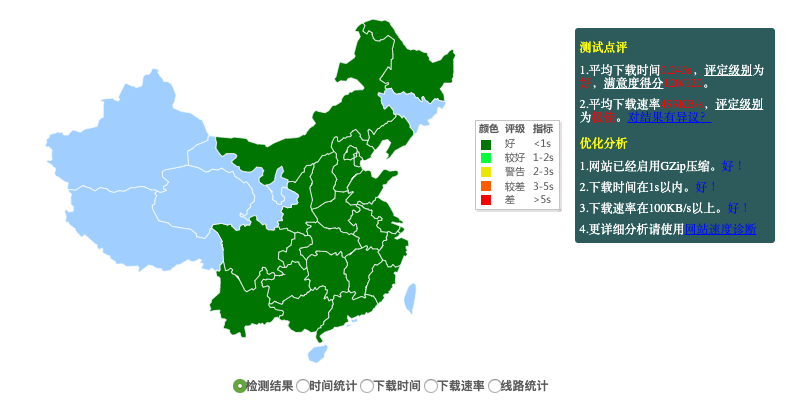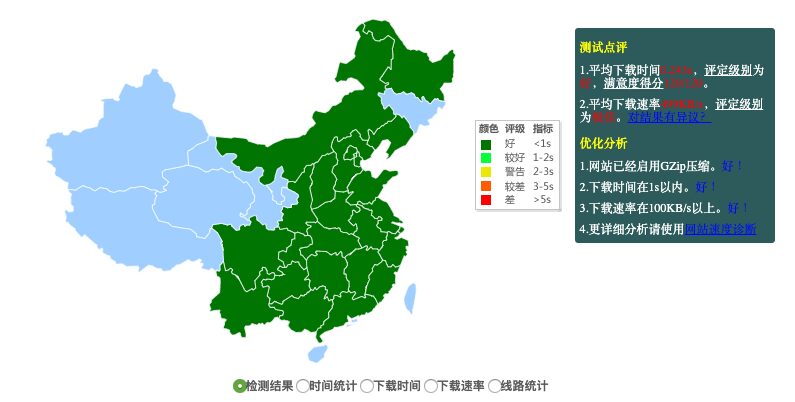When working with clients on optimizing their websites for the Chinese market, a common early conversation is that of the Great Firewall and how to serve content in China effectively.
The Great Firewall is a term used to describe content censorship within China. When talking about SEO for Baidu, it is also a very misused and misunderstood term.
Websites hosted outside of China used to suffer from slow load times, but most websites loaded slowly regardless of their origin.
Not so long ago, Chinese internet speeds averaged 700/kbps while internet speeds were averaging 3,812/kbps in the UK and 4,684/kbps in the US.
As a result, this has lead to users having an expectation of pages loading slowly so the habit of opening multiple tabs or items in new tabs formed, a user behavior that still occurs today.
Speed is now not so much an issue in China, with speeds averaging 91.88/mbps on desktop. That said, there are a number of other considerations to bear in mind when optimizing your site for both Baidu and Chinese users.
Getting indexed in Baidu is also touted as being a difficult challenge, but that’s not the case.
It is true that Baidu has different criteria than Google, but these criteria can be met and your site indexed.
In fact, Baidu themselves say that:
“Most websites on the Internet are not included in Baidu at all. It’s not that Baidu didn’t find them, but they were filtered out before being entered into the database.”
So how can you avoid being filtered out before you even make the Baidu database?
Understanding the Great Firewall & Site Speed Ranking Factors
The Great Firewall is often used in conversation to relate to the speed that websites (hosted outside of China) load within the country. However, this isn’t the full picture.
China, like most countries, has varying internet speeds. While your site may load fine in Beijing, it may not necessarily load as fast or be as accessible in other large cities like Chongqing.
You can test your page load speed across Chinese regions using tools such as Webaka. (This is only available in Chinese and you will need to run Flash.)
 Webaka Chinese Regional Speed Testing Tool
Webaka Chinese Regional Speed Testing ToolPage load speed is an important factor for Baidu. It is also a factor in how Baidu processes the page into the database.
Again, referring back to Ziyuan:
“If the webpage load speed is too slow, the page may be treated as a ‘short page’. It’s important to note that the load time of Ads is also counted during the overall load time of the webpage.”
This means that if you’re not fast, Baidu might not even index your page.
The Great Firewall acts as a censorship barrier against:
- Websites deemed to publish politically sensitive content.
- Some social media/self-publishing platforms hosted outside of China.
- Any other content deemed by the Chinese government as being inappropriate. This includes a number of websites we take for granted, such as Google, Facebook, Instagram, Chinese Wikipedia, and some major publications (e.g., The New York Times).
However, sometimes websites that don’t contain political or “sensitive” content can fall foul of the Firewall, and all websites outside of China can intermittently be slow to load, or completely accessible.
The frequency of these issues tends to correlate with political events in China, with more disruptions and issues at sensitive times.
In November 2014, the EdgeCast CDN network was blocked, meaning their customers (including Atari, Magento, WordPress, Pokemon, and Tumblr) will have likely experienced outages and organic performance issues in China.
“Please be advised, we are experiencing issues with content delivery in the China region due to suddenly increased restrictions imposed by the Chinese Government. If you are receiving reports from end-users not able to view content from within China, please contact our Network Operations Center to discuss the options available to you.”
This disruption also correlates with the timing of the Fourth Plenum, which occurred a couple of weeks before.
Because of this, it’s important to first understand if the website you’re looking to optimize is accessible within China. You can check this with a tool, such as GreatFire.org.
Due to the intermittency and volatility of the firewall, declines in performance can sometimes be traced back to a period of being blocked or metered by the Firewall – and in these instances, there’s not a lot you can do.
Baidu & HTTPS
The adoption of HTTPS in China has been much slower and with less emphasis than it has in the U.S. and other markets.
Baidu announced full support for crawling and indexing HTTPS protocol webpages in 2015, and then in summer 2016 they further update Baidu-spider to better handle HTTPS.
Similar to Google, Baidu claims a small performance benefit in rankings from server content securely to users.
Baidu & JavaScript
While Google and Bing have gotten a lot better at crawling content served via JavaScript, but Baidu-spider has still got a long way to go.
On Ziyuan, Baidu’s own knowledge base, it says that although users can see rich content served through JavaScript, Baidu will abandon attempting to index the content due to the technologies used.
This includes AJAX content, JavaScript links, language switchers in JavaScript, or anything else that hides content or links in JavaScript.
Baidu & CDNs
If you’re having issues with site speed in China, leveraging a CDN might not be the worst idea.
In addition to speed improvements, CDNs can also offer other benefits such as additional security, up-time, and edge SEO functions.
When it comes to choosing a CDN for China, there are three options available to you:
- A global CDN (as part of your wider, international strategy).
- A local Chinese CDN.
- A local self-serve CDN.
Global CDNs for China
As part of your wider international strategy or general tech stack, you might already be utilizing a global CDN.
However, it is possible that the Chinese government may decide to block a global CDN (as with the EdgeCast example mentioned earlier in the article).
It’s also important to note that not all global CDNs work in China, but ones that do include Quantil, CDNetworks, Akamai, and Amazon Cloudfront.
Chinese CDN Providers
If you’re not on a global CDN or your website infrastructure has the Chinese version of your site “outside” the core setup, you may want to utilize a local Chinese CDN provider.
These typically have better performance in China, due to location, but any global CDN with a comprehensive anycast network and locations in China would also perform at a high level.
Two popular Chinese CDNs to choose from are:
Self-Service Chinese CDNs
These CDNs can be more affordable than a global CDN, but you may inherit more technical debt and require more setup work internally as these are predominantly self-service solutions.
The main three providers in China include:
Loading Resources
On the same note as CDNs, it’s important that resources (JS and CSS libraries) are not loaded from a Google CDN or other Western CDN.
These CDNs can be easily blocked or metered from China (via the Great Firewall), which will cause your webpages to load slowly and risk being removed from the index.
The best practice would be to load your JavaScript and CSS libraries for your Chinese site from hosted libraries in China, such as UpYun.
Summary
In short, how efficiently you deliver your content in China can impact your organic performance in Baidu and whether Baidu chooses to index the pages.
However, the three golden rules are:
- Make sure that your pages load fast.
- Make sure links and main body content are not served through JavaScript.
- Serve your content through a CDN (to be extra sure).
More Resources:
Image Credits
Screenshot taken by author, October 2019
